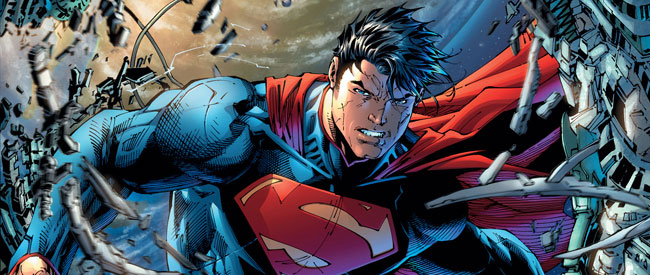
At Chicago Comic-Con, several guest panelists discussed the impact of the Man of Steel on popular culture, the comics industry, and their own lives.
Having reached his 75th anniversary and with a new film in theaters, Superman has been in the limelight quite a bit recently. At the 2013 Wizard World Chicago Comic-Con, a panel of guests, creators, and experts came together to discuss the storied history of that strange visitor from another planet and just why he has thrived for so many years in the public imagination. In attendance were actor Brandon Routh, who portrayed the hero in Superman Returns, legendary comics artist Neal Adams, Larry Tye, author of Superman: The High-Flying History of America’s Most Enduring Hero, and Travis Langley of PsychologyToday.com, who offered analysis of the archetypal character. Author Danny Fingeroth (Disguised as Clark Kent: Jews, Comics, and the Creation of the Superhero) served as moderator.
Neal Adams opened the panel by talking about where it all began with Jerry Siegel and Joe Shuster, two Jewish kids from New York who went on to create a legend. Adams called Superman one of the most iconic characters in American and European culture, alongside Sherlock Holmes and Tarzan. “Batman is a sloppy fourth,” the artist joked.
Tye also spoke of the character’s beginnings, referring to what he’d learned from Jerry Siegel’s unpublished memoir. Siegel had been a shy kid with Coke-bottle glasses and was frequently the target of bullying. His initial creation (then called “The Super-Man”) was at first conceived as a villain, the ultimate revenge fantasy against those who had tormented his creator. After Siegel’s father died of a heart attack during a robbery of the family store, Siegel’s creative musings changed focus. The character was rewritten as a hero, a champion who would stand up to criminals, crooks, and bullies and inspire others. An early Superman story featured a character reminiscent of Siegel’s father being rescued by the Man of Steel.
Langley added that bullying and the reaction against it is often a big part of the creation of superheroes. He cited similar examples such as Spider-Man or Bruce Banner who begin as the proverbial “little guy” but gain the power to stand against cruelty and powerful enemies. Such characters are the perfect alter egos and proxies for socially awkward or bullied individuals, many of whom are among the creators and fan base of comic books. Langley also mentioned an early 1934 draft of Superman’s origins by Siegel and Shuster. Aside from different names for Clark Kent’s adoptive parents (Sam and Molly in this version, Jonathan and Martha in the final), this iteration of Superman began on a future version of Earth. It was our own world, not Krypton, which was dying. In this incarnation, Superman truly was one of us.
Brandon Routh was one of those awkward kids who related to Superman and Clark Kent, for he had grown up as “a bit of a klutz.” While he had not been a comics fan, Routh had been enthralled by Superman: The Movie and the performance of Christopher Reeve. Both had left a huge impression on him and he was thrilled to be asked to play the character in Superman Returns. He didn’t need to view the original film again for he had seen it so many times he had “absorbed its spirit.” Routh spoke later about his approach, that Clark was Superman’s way to truly interact with his adopted world. In Routh’s view, Clark is more real than Superman, the true personality of the character. There is the Superman persona, the bumbling Clark persona, and then the true Clark at the character’s heart. Langley likened the Clark Kent identity to celebrities who wear masks in order to wander around comics conventions. Only in disguise are they able to mingle with the public and be normal, while also getting a full understanding of their impact on the culture.
Adams has had a more personal involvement in the history of Superman, Siegel, and Shuster than many in the industry. He talked about Siegel’s bitterness towards DC Comics and Warner Bros., who had denied him royalties or recognition for the Superman character, leaving him nearly destitute by the 1970s. The co-creator of one of the greatest comic book characters was by that point legally blind and sleeping on a cot in a relative’s apartment. Siegel had written a letter to the Washington Post and other outlets which crossed Adams’ desk. Adams became determined to fight for Siegel and other creators’ rights.
As a result of Adams’ efforts, both Siegel and Shuster appeared on The Tonight Show to discuss their unfair treatment. While Siegel had been extremely bitter, the host had called Shuster “an angel from Heaven made out of marshmallows.” Shuster claimed he could not be angry when the character he helped create had gone on to become so popular and beloved. He was amazed when the musical It’s a Bird…It’s a Plane…It’s Superman debuted on Broadway. However, tellingly, Shuster had not been invited to the premiere nor could he afford a ticket.
The crisis came to a head when Jay Emmett, nephew of DC Comics president Jack Liebowitz, became the head of the company’s licensing department. He informed Adams that Warner Bros. was considering shutting DC down and merely using the characters as film properties. Emmett suggested paying Siegel and Shuster a pittance to get them to shut up. Adams was horrified by this and redoubled his efforts. Thanks to his work, Siegel and Shuster won a settlement and were able to live comfortably for the remainder of their lives. DC Comics also continued to endure, narrowly avoiding an unfortunate fate. Like Superman, Adams had stood up to the bullies.
The panel concluded with each of the guests answering the question, “Why does Superman inspire us?” Tye believes that the character is always evolving for the times. In the 1930s, he was the butt-kicking New Deal liberal. In later decades he was a more conservative, all-American father figure, fighting Communism or Atomic Age threats. Today, he’s a new media blogger and citizen of the world, not just America. Yet through all incarnations, the basic essence of the character remains the same, a champion to fight for the oppressed.
Routh stated that to him, Superman is the pinnacle of humanity and represents the best that we can be. Langley concurred, saying that we always need hope and someone who can stand up to the problems of the world that seem too big for any one person. Adams once again stressed the Jewish origins of the character and many other heroes of the Golden Age of Comics. The art that comes from a downtrodden people is fueled by a desire to fight injustice and make a difference in the world. Superman and the heroes that came after him are characters that we aspire to be like for they are our hopes and our dreams.





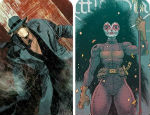
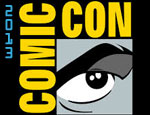
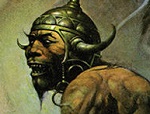
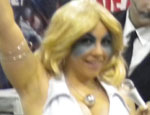
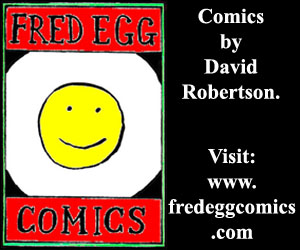


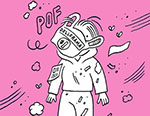
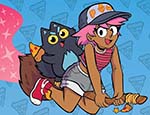
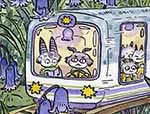
Sitting between Neal Adams & Brandon Routh for Wizard World Chicago Comic Con’s “Superman at 75” panel was truly an honor. Great writeup!